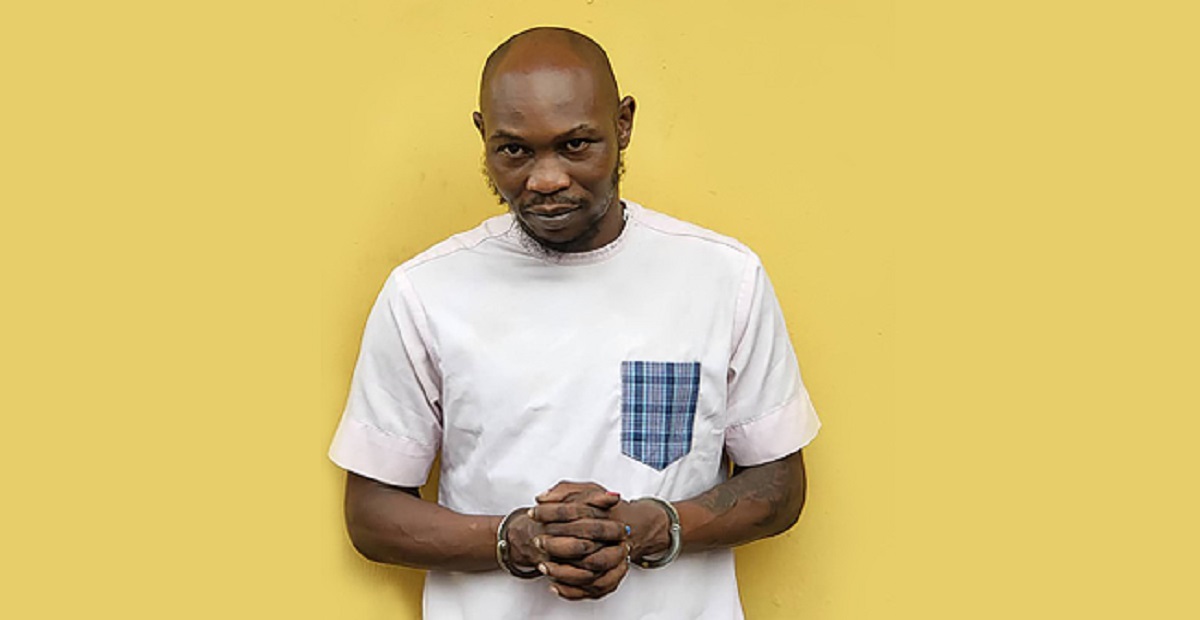Nigerian musician, Seun Kuti, was recently captured in a trending video allegedly assaulting a police officer in uniform. Consequently, the Inspector-General of Police had ordered the arrest of the singer and son of the Afrobeat Legend, Fela Kuti.
Interestingly, knowing there is no hiding place for a golden fish, Seun Kuti, turned himself in at the Lagos State Police Command on Monday, 15 May 2023 before he was transferred to the State Criminal Investigation Department, Panti, Lagos.
The news of Seun Kuti showing up at the Police Command was well-received by the public. But pictures of him in handcuffs as shared by the Police spokesman in Lagos, SP Benjamin Hundeyin, raised some eyebrows. People questioned the legality of handcuffing the musician.
SERIOUS ASSAULT ON POLICE OFFICER: SEUN KUTI TURNS SELF IN
Afrobeat musician, Seun Kuti, in the early hours of today turned himself in at the Lagos State Police Command Headquarters, Ikeja, in company of his lawyer and family representative. He has been placed under arrest 1/2 https://t.co/KDvQIWHupz pic.twitter.com/nRQn0yLmLh
— CSP Benjamin Hundeyin (@BenHundeyin) May 15, 2023
What the law says about use of handcuffs
The Constitution of the Federal Republic of Nigeria (as amended) guarantees the fundamental rights of citizens. The Constitution provides against any form of inhuman and degrading treatment. More so, it is important to note that every criminal suspect as well as convicted persons also have rights protected by law. Thus, in the course of arrest and criminal investigations, the Police is expected to respect the rights of suspects within the limits provided by law.
Notably, one of the rights a suspect enjoys is the right not to be unnecessarily restrained through the use of handcuffs. This is as stipulated under the Administration of the Criminal Justice Act (ACJA) 2015 and Nigeria Police Act 2020. But there are exceptions. The law clearly provides for situations where a suspect may be handcuffed. Section 5 of the ACJA (section 34 Police Act 2020) states:
a suspect or defendant may not be handcuffed, bound or be subjected to restraint except:
(a) there is reasonable apprehension of violence or an attempt to escape;
(b) the restraint is considered necessary for the safety of the suspect or defendant; or
(c) by order of a court.
Any legal basis for the handcuffs?
There was nothing to show that handcuffing Seun Kuti was necessary for his safety. [Section 5(b)]. We are also not aware if the Police had secured any court order to handcuff him. [Section 5(c)]. Note that before such an order would be made in the first place, the court must be satisfied that such an order was necessary.
Finally, we are now left with section 5(a) which provides that a suspect may be handcuffed if “there is reasonable apprehension of violence or an attempt to escape.” This subsection has two legs. First is reasonable apprehension of violence. The second is an attempt to escape. Considering that Seun Kuti turned himself in, it is doubtful if he attempted to escape from the Police. The only question left for us to answer is whether the Police handcuffed Seun Kuti based on reasonable apprehension of violence from him.
It is my opinion that the Police may rely on this ground for handcuffing Seun Kuti. From the video making the rounds, Seun Kuti allegedly assaulted an officer in uniform. The officer appeared calm all through the altercation. The Police may reasonably argue that handcuffing Seun Kuti was necessary. This is to prevent him from possibly attempting to slap another officer during interrogations.
Conclusion
It is difficult to predict what the hands that allegedly slapped an officer in uniform would do at any given time. Perhaps, putting those hands in handcuffs may be a safe thing to do at the material time. Recent reports have it that Seun Kuti has now been charged to court and arraigned.














